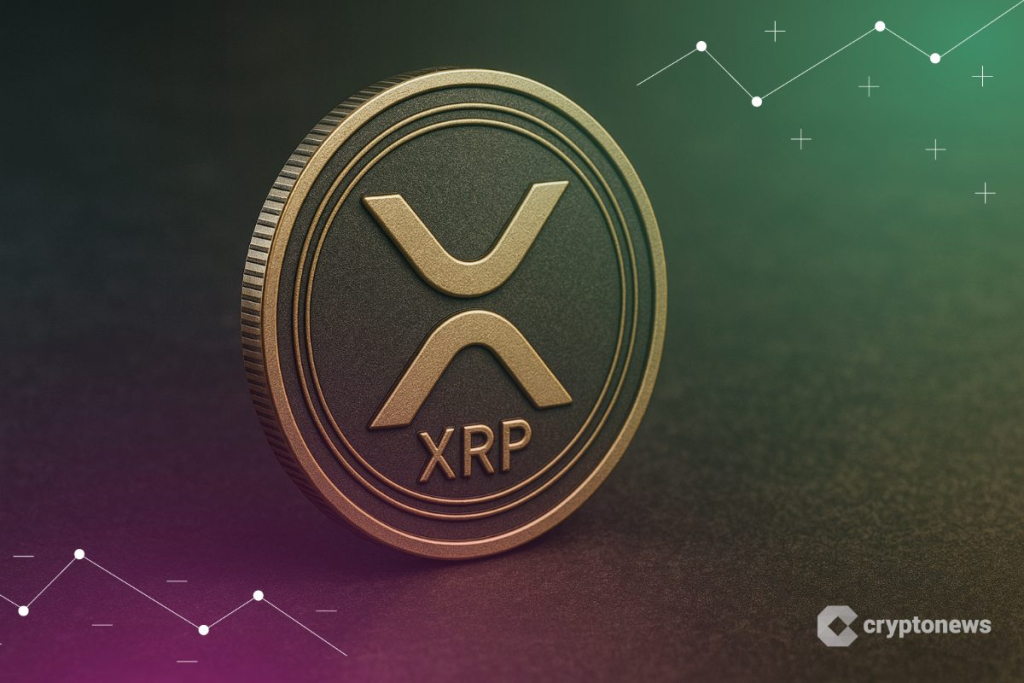Key Takeaways:
Circle’s USDC has officially launched on the XRP Ledger (XRPL), marking a significant advancement in cross-chain transfers facilitated by the auto-bridging feature of the XRP network. As USDC expands its utility, regulators in the United States are sharpening their scrutiny of stablecoins, recognizing their growing influence in the financial landscape.
Ripple, the entity behind the XRP Ledger, announced on Thursday that users can now utilize XRP as a bridging currency to transfer USDC between decentralized exchanges, capitalizing on the XRPL’s auto-bridging capabilities. Markus Infanger, senior vice president at RippleX, highlighted the importance of this initiative, noting that it bridges the gap between traditional finance and the burgeoning crypto economy.
“Stablecoins serve as vital entry points connecting traditional financial markets with the crypto landscape — critical for utility-focused applications rather than speculation,” Infanger remarked.
U.S. Regulatory Focus on Stablecoins Intensifies
This rollout coincides with a period of heightened regulatory interest in stablecoins within the United States. The aggregate market capitalization for stablecoins has surpassed $237 billion, underscoring their pivotal role in international finance, particularly due to their backing by U.S. Treasury securities.
Issuers of stablecoins can derive yields from these short-term government investments, making them not only profitable but also politically significant as some U.S. officials view dollar-pegged stablecoins as a countermeasure against de-dollarization efforts, especially as nations like China and Russia decrease their reliance on U.S. debt.
In light of recent sell-offs of U.S. Treasuries by foreign governments, bond yields have been rising, leading to increased borrowing costs and exacerbating the challenges associated with the $36 trillion national debt. During the White House Crypto Summit on March 7, Treasury Secretary Scott Bessent stressed the necessity for stablecoin innovation to maintain the dollar’s global stature.
However, figures like Max Keiser have voiced skepticism, asserting that dollar-backed stablecoins represent a temporary solution. Keiser argues that gold-backed alternatives are likely to perform better due to gold’s robust stock-to-flow ratio, which provides a safeguard against inflation and value depreciation.
The integration of USDC into the XRPL ecosystem highlights Ripple’s strategy to embed stablecoin liquidity within its layer-1 framework, further enhancing XRP’s role as a functional bridge asset in the decentralized finance environment.
XRPL Bolsters Its Stablecoin Portfolio
In addition to the USDC launch, the XRP Ledger has recently diversified its stablecoin offerings, unveiling two new assets targeting regional markets in May. Among these is EURØP, a euro stablecoin compliant with the European MiCA regulations, issued by Schuman Financial, as well as USDB, a dollar-pegged token from Brazil’s Braza Group.
EURØP is supported by euros and protected by reputable institutions such as Societe Generale, marking it as the first fully MiCA-compliant euro stablecoin on the XRPL. Meanwhile, Braza Group’s USDB, backed by U.S. and Brazilian bonds, provides Brazilian consumers with a secure digital asset for transactions and hedging strategies.
One chain. Global adoption.
Now live on the XRP Ledger:
$RLUSD — @Ripple
$USDC — @Circle
$XSGD — @StraitsX
$EURØP — @Schuman_io
$USDB — @BrazaBank
The XRPL is ready for the builders, institutions and users who demand fast and compliant stablecoins:… pic.twitter.com/lnWjzfNlOl
— RippleX (@RippleXDev) June 12, 2025
In other developments, entrepreneur Gary Cardone has publicly criticized XRP, claiming it aligns too closely with centralized government interests to maintain its relevance. His comments come amidst ongoing speculations that the European Central Bank may consider incorporating the XRP Ledger into its digital euro framework. While no formal partnership has been confirmed between the ECB and Ripple, the crypto community is abuzz with uncertainty. Cardone has taken his critique further, comparing XRP’s financial impact to a virus, dubbing it “COVID-19 Part Two in finance.”
The post Circle’s USDC Debuts on XRP Ledger, Unlocking New Cross-Chain Liquidity Paths appeared first on Finance Newso.


























